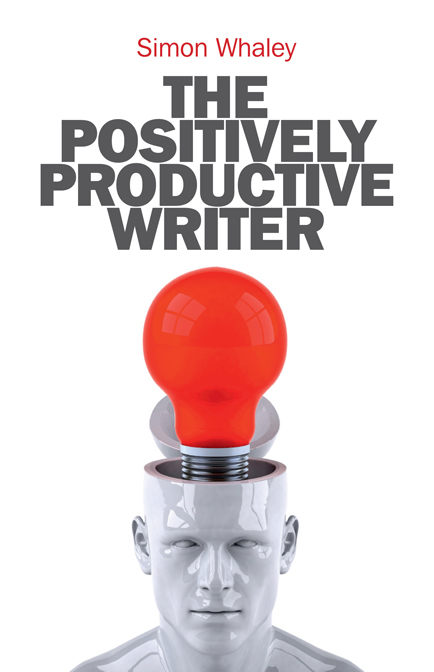 Officially the blog tour has finished, but to round off the week here is a guest post by Melissa McPhail, talking about magic systems in fantasy and how she devised the one she uses in Cephrael’s Hand. Then read on to learn how you can win huge prizes as part of this blog tour, including a Kindle Fire, $450 in Amazon gift cards, and 5 autographed copies of the book.
Officially the blog tour has finished, but to round off the week here is a guest post by Melissa McPhail, talking about magic systems in fantasy and how she devised the one she uses in Cephrael’s Hand. Then read on to learn how you can win huge prizes as part of this blog tour, including a Kindle Fire, $450 in Amazon gift cards, and 5 autographed copies of the book.
My Take on Magic Systems
A guest post by Melissa McPhail
One of the most enticing aspects of writing fantasy is developing a magic system. The author’s magic system is inextricably woven into their world and contributes greatly to the reader’s vision of the world overall. The way a system is created either makes the world seem real or unreal, depending on how well the author has grounded the system with laws and limitations.
For example, scientists in our own world have defined laws—inertia, gravity, the periodic table—that describe the physical limitations and properties of energy. We don’t expect a stone to rise upwards when we throw it, but we might believe it could float if it were somehow made of helium. Likewise in a fantasy world, it’s important to codify the system with laws and rules (and to stick to those rules once established), to set boundaries for what the magician can and cannot do with magic, and to establish consequences for and ramifications of magical misuse.
This all shows that magic systems require significant thought and research on the author’s part to develop realistically. Yet for all of this, the manner in which one might design and describe the magical process is potentially limitless—there are as many magical systems as there are fantasy novels, and equally as many readers eager to pontificate on their pros and cons and/or to organize the systems into categories and types.
The one thing most magic systems have in common, however, is that they all handle energy. Whether that energy is spiritual, omnipotent, corporeal, or derives from physical objects or living things, the working of arcane arts surrounds the manipulation of energy.
I designed the magic in Cephrael’s Hand based on scientists’ existing understanding of electrical fields. The process of thought has been scientifically proven to produce energy, and human bodies are known to generate electrical fields. For the magic in Alorin, I proposed that all living things produce a metaphysical energy which is formless but which flows across the world in natural currents. This energy is called elae. This is the energy a magician of Alorin uses to produce arcane workings. How he does this is the creative part.
In Cephrael’s Hand, all things are formed of patterns. A single leaf derives its pattern from the larger pattern of its motherly oak. The snowflake harbors the pattern of a storm. Rivers form patterns that mimic the pattern of the world, and a living man harbors within him the pattern of his immortality. These inherent patterns collect and compel energy (elae) toward a certain purpose—growth, action, states of change.
To compel energy, a magician of Alorin (called a wielder) must learn to first identify and then usurp control over the pattern of a thing in order to command it. This is a laborious process requiring a lifetime of study.
Unlike wielders, the Adepts in Cephrael’s Hand are born with the ability to manipulate certain patterns. Adept Healers can see creation patterns (life patterns) and mend them where they’ve become frayed. Truthreaders can hear certain thoughts and read minds to see what a man saw versus what he says he saw. Nodefinders have the ability to move long distances with a single step by traveling on the pattern of the world. And Wildlings tap into a variant aspect of the lifeforce called elae to shapeshift or even skip through time, among other intriguing talents. The last type of Adept can sense the patterns of nonliving things—stone, air, water, fire, etc.—and use those patterns to compel the elements themselves.
Adepts are limited by nature of their birth—they can only inherently work one category of patterns. They are limited by their training, their inherent intelligence, talent and ability. And of course, like us in real life, they are limited by their own vision of their capabilities.
Above all of these limitations, we find Adepts limited by “Balance.” The concept of Balance draws from my studies of Eastern philosophies. It is the high governing force, the yen and yang, karma, cause and effect, fate. It’s as esoteric and arcane as these concepts imply. How far can the Balance be pushed in one direction without lashing back at the wielder? Which actions stretch it and which ones defy it? Balance is a complex and complicated subject—as difficult to define as our own world’s myriad competing religions. The only real agreement on the subject of Balance is that all magical workings stretch the Balance to some degree. Understanding how far they can be stretched without snapping is central to survival in the arcane arts.
The concept of Balance provides, well, the “balancing” force to all magical workings in Cephrael’s Hand and is central to its plot. You see, the entire realm of Alorin is out of Balance and magic is dying—and the Adept race dies along with it.
 As part of this special promotional extravaganza sponsored by Novel Publicity, the price of the Cephrael’s Hand eBook edition is just 99 cents this week. What’s more, by purchasing this fantastic book at an incredibly low price, you can enter to win many awesome prizes.
As part of this special promotional extravaganza sponsored by Novel Publicity, the price of the Cephrael’s Hand eBook edition is just 99 cents this week. What’s more, by purchasing this fantastic book at an incredibly low price, you can enter to win many awesome prizes.
The prizes include a Kindle Fire, $450 in Amazon gift cards, and 5 autographed copies of the book.
All the info you need to win one of these amazing prizes is RIGHT HERE. Remember, winning is as easy as clicking a button or leaving a blog comment–easy to enter; easy to win!
To win the prizes:
- Purchase your copy of Cephrael’s Hand for just 99 cents
- Enter the Rafflecopter contest on Novel Publicity
- Visit today’s featured social media event
About Cephrael’s Hand: Two brothers find themselves on opposite sides of a great battle, neither knowing the other is alive… A traitor works in exile while preparing for the disaster only he knows is coming… A race of beings from beyond the fringe of the universe begin unmaking the world from within… And all across the land, magic is dying. Cephrael’s Hand is the first novel in the award-winning series A Pattern of Shadow and Light. Get it on Amazon or Barnes & Noble.
About the author: Melissa McPhail is a classically trained pianist, violinist and composer, a Vinyasa yoga instructor, and an avid Fantasy reader. She lives in the Pacific Northwest with her husband, their twin daughters and two very large cats. Visit Melissa on her website, Twitter, Facebook, or GoodReads.










